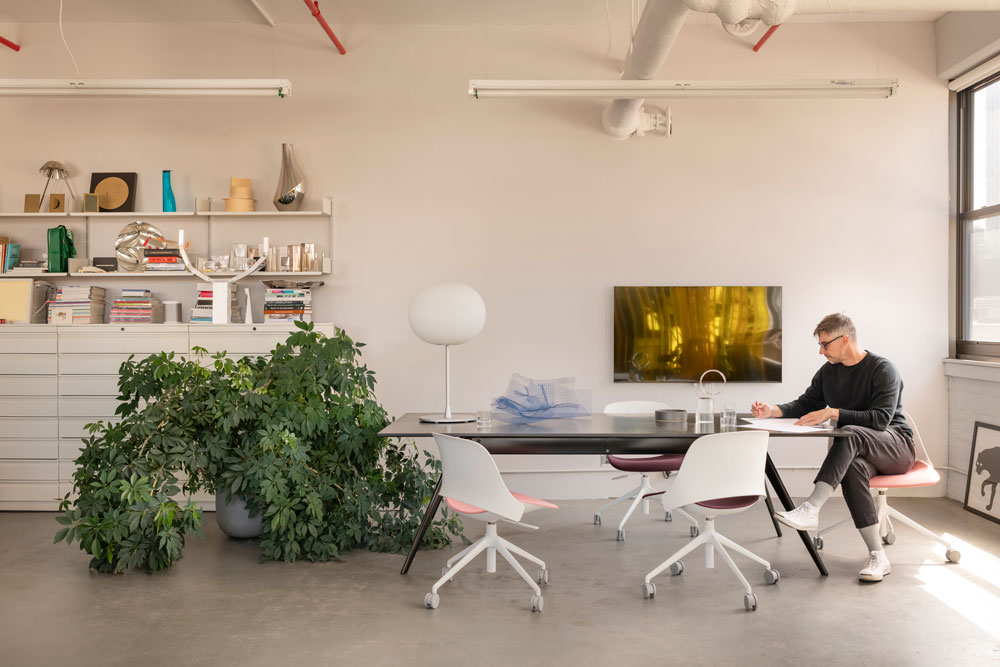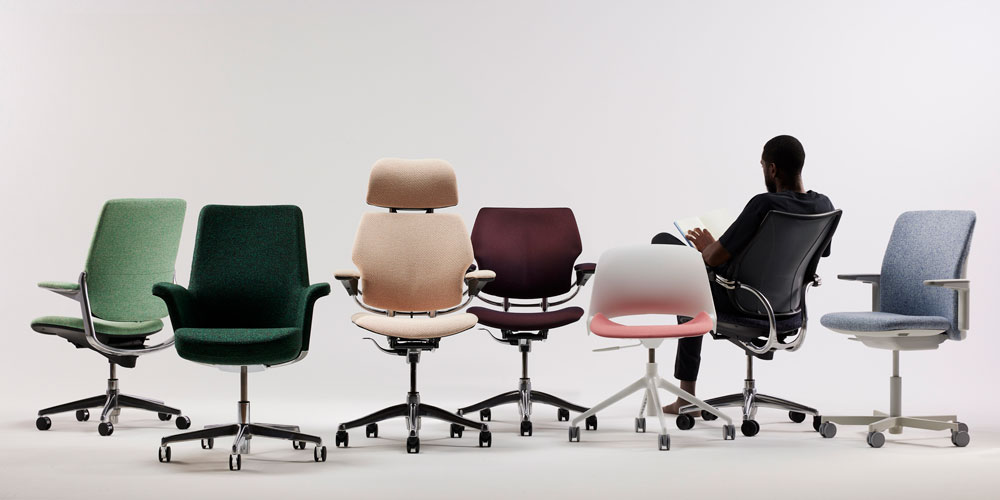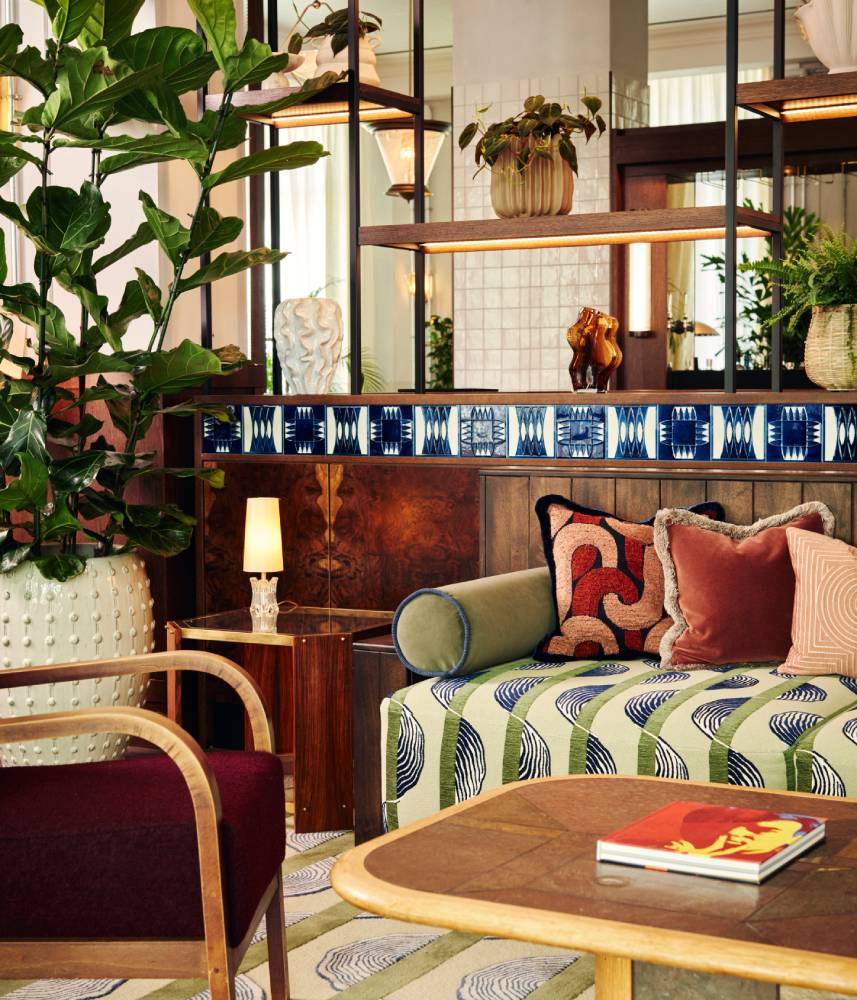Have we forgotten about ergonomics in our pursuit of flexibility?
Ergonomics, for everywhere: Humanscale brings a slice of Orgatec to London, highlighting the vital role of health and wellbeing wherever we work.
Feature in partnership with Humanscale
 trea lite task
trea lite task
Flexibility and hybrid working has become one of the most highly requested and discussed developments in the world of architecture and design as our expectations, perceptions and requirements of indoor spaces continue to evolve. Nowhere has this desire for adaptability been more impactful than in the office; creating more versatile facilities in the workplace and extending this approach to the home as employers across the world adopt hybrid working policies.
Within this move towards agile office design, hot desking and ‘work wherever’ initiatives, some workplace fundamentals can start to get lost – including the importance of ergonomics. Exploring this relationship between ergonomic wellbeing and flexibility, in November Humanscale brought the energy of world-renowned trade fair Orgatec to the heart of Clerkenwell, showcasing its Connected exhibition in the brand’s showroom. Over a special four-day event, the furniture innovator presented its latest workplace solutions in London’s vibrant design hub, bringing its newest ranges and product concepts to those who missed this year’s trade fair in Koelnmesse, Cologne.

Ergonomics Everywhere
Humanscale has found that, on average, workers transition between three to five chairs every day – and as a wider variety of workspaces in one office scheme gradually becomes the standard (from breakout zones and coworking spaces to acoustic pods and conference rooms), the range of office furniture we use daily has arguably never been greater. It’s therefore crucial that contemporary office design incorporates a diverse selection a of adjustable, adaptive, wellbeing-led furniture across all of these spaces, ensuring a seamless transition between different modes of working.
“As the modern workplace evolves, collaborative and informal settings – commonly known as ‘ancillary spaces’ – have become vital to in-office experiences,” explains Todd Bracher, Creative Director at Humanscale and founder of Studio Bracher. “With organisations adapting to the needs of a more flexible, mobile workforce, ergonomic considerations now extend well beyond the traditional desk. For example, C-suite executives are spending over 50% of their time in meetings, making comfortable, supportive seating in collaborative spaces more critical than ever.”
 float gather
float gather
During Orgatec London, Humanscale demonstrated this shift in the world of workplace design with its Connected exhibition, showcasing all the latest pieces from its portfolio that don’t just mitigate but promote health. This of course included exclusive product previews and launches from Orgatec in October, such as Diffrient Lounge, the Sedeo stool, and new members of the Float table family including the eFloat Quattro, Float Gather, Float Mini and Float Micro. “Movement is essential to long-term health, especially during the workday, and research shows that standing for just three minutes every hour has significant health benefits,” says Bracher. “With Float Mini, transitioning between sitting and standing is effortless, requiring no electricity. Float Gather’s seamless height adjustment also promotes frequent posture changes, helping to improve circulation, reduce muscle strain and prevent the health risks associated with prolonged sitting.”
Members of Humanscale’s Trea Family were also on display, with the Trea multipurpose chair at home in the exhibition’s Premium WFH Essentials category and the new Trea Lite Task chairs showcased in the Work Café. Over in the Collaborative Zone, versatile pieces such as Humanscale Design Studio’s Red Dot award-winning Active Pony explored the concept of active sitting, while Bracher’s Path chair – billed as ‘the most sustainable task chair ever made’ – was displayed as part of The Ocean Collection, which turns discarded fishing nets (the most harmful kind of ocean plastic) and ocean-bound plastics into ergonomic office furniture.
 float mini
float mini
Planet Positive
As well as introducing Clerkenwell to its product range dedicated to comfort and focus without interruption, another key fixture of Orgatec London was Planet Positive. In this section of the exhibition, Humanscale – who recently published their annual CSR report and also received B-Corp certification – showed visitors how workspace design, ergonomic wellness and environmental impact are all intricately linked, and advocated for a reimagined supply chain that prioritises the needs of people and planet equally.
Outlining the tangible changes it has already made in pursuit of a greener future, this section of the exhibition explained how 70% of products by revenue are now certified climate-positive under the Living Product Challenge. Other sustainable initiatives discussed were the manufacturer’s factories now being certified as certified as TRUE Zero Waste – meaning 93% of waste is diverted from landfill – and over half of the electricity at its main factory is provided by solar panels. As well as avoiding carbon credits or offsetting programmes in favour of climate positive production, here Humanscale also revealed that it has eliminated Chrome 6, PFAs/PFCs, BPA, and HFRs from its product line, all of which are toxins and carcinogens commonly used in the furniture industry.
Through this layered exhibition, Humanscale reminded visitors not only of the importance of ergonomics, but also the real impact that wellbeing-led workplaces can have on both people and the planet. As our values and priorities for the workspaces of tomorrow continue to evolve, good design should strike the balance between designing for adaptability, disassembly and wellbeing – without allowing flexibility to come at the cost of our health.

